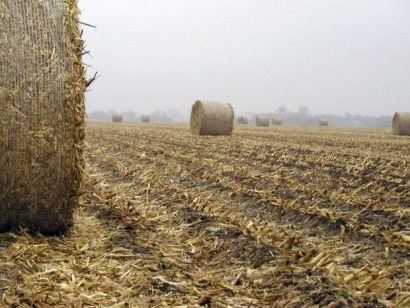
"This project offers producers new opportunities and will generate positive economic benefits while reducing both greenhouse gas emissions and the contamination of the water table and soil," said Minister Paradis. "The marketing of this technology in other industries could generate an interesting diversification of the sector. The green economy is creating jobs and shows promise for the entire country."
Biofour Inc. will use this investment to test a boiler incinerator that burns biomasses other than those derived from forest products. The goal is to verify its effectiveness and its economic value in the sector's daily applications. This trial will attempt to evaluate the energy potential of various biomasses. The project will supply a poultry house and will allow for use of the incinerator in a heating network supplied by crop residues and poultry litter.
This project will have a positive impact on the agricultural sector by giving producers new ways to profit from agricultural residues, either by marketing their raw materials in organized markets or by acquiring an oven and reclaiming the residues.
"These funds will help support our efforts to develop technologies that add value to agricultural and agri-food residual materials," said Marilou Cyr, Director of Marketing, Communications and Business Development at Biofour Inc. "Our goal is to provide an alternative heating and residue management solution for Canadian agricultural and agri-food businesses, thus helping to simultaneously reduce production costs and greenhouse gas emissions."
CAAP is a five-year program (2009-14). It has a budget of $163 million and aims to help the Canadian agricultural sector adapt and remain competitive. The measures included in the next phase of Canada's Economic Action Plan, combined with other Government of Canada programs and initiatives, such as CAAP, will continue to help farmers by emphasizing job creation and strengthening the economy. The investments in new business opportunities will help to further reinforce Canada's agricultural sector and economy for the future.
Due to the high number of project proposals received by Agriculture and Agri-food Canada, which is managing the program, it is no longer accepting any new proposals for national CAAP initiatives at this time. However, CAAP will continue to support industry-led initiatives at the regional and multi-regional levels.
For additional information:

